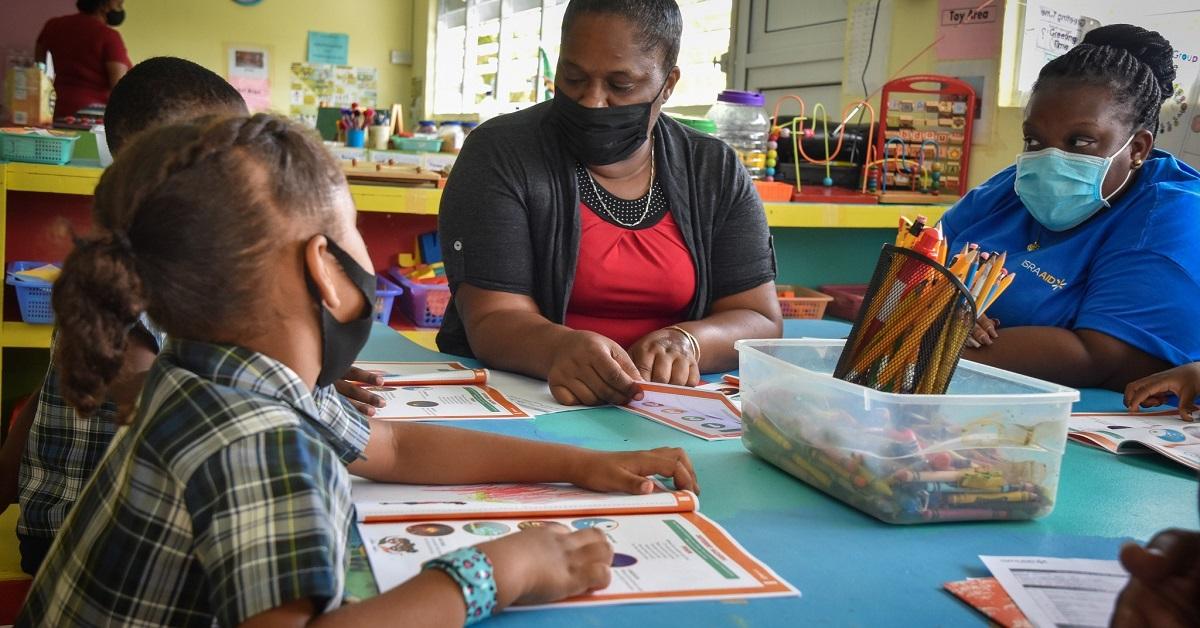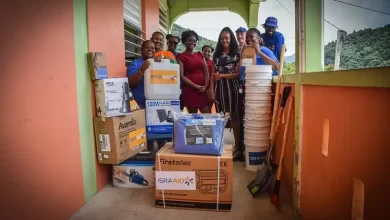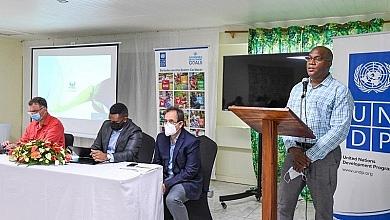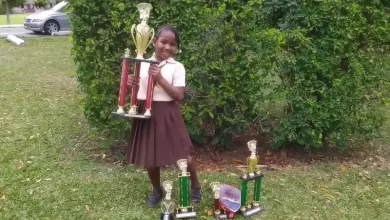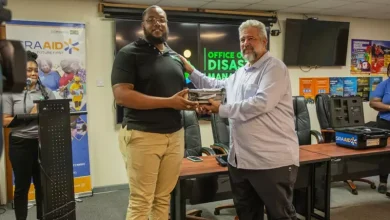IsraAID Dominica & UNDP Launch New Safe Schools Project
IsraAID Dominica and the Ministry of Education, HR Planning, Vocational Training and National Excellence has launched a new disaster resilience and preparedness program in Early Childhood Development schools in East and Southeast Dominica, with funding from UNDP the United Nations Development Programme (UNDP) in the context of a strategic programme funded by the Government of Japan. The initial ‘Safe Schools, Resilient Communities’ project will build on previous hurricane-awareness programs, reaching students, parents, and teachers at 17 early childhood education schools. The project was launched in February 2022 and will run until June.
The project includes a multi-hazard activity book, providing schools with age appropriate content to teach young students about different natural hazards and how to prepare. Alongside the activity book, gender-sensitive workshops for parents and teachers will equip school communities with the skills and knowledge needed to prepare for natural hazards and ensure long-term resilience.
‘Safe Schools, Resilient Communities’ was launched at an official Zoom event, attended by the Permanent Secretary within the Ministry of Education, Mrs. Chandler Hyacinth, Chief Education Officer, Dr. Jeffery Blaize, the Early Childhood Education Coordinator Mrs. Veda George as well as representatives of UNDP and, IsraAID. This project forms part of UNDP’s ‘Guy-Dom Project: Strengthening Disaster Management Capacity of Women in the Commonwealth of Dominica and Republic of Guyana’, which aims to support vulnerable groups in hazard-prone communities to strengthen disaster and climate risk resilience, towards enhancing sustainable livelihoods.
Permanent Secretary, Mrs. Hyacinth, noted that the project was a very timely one as the Ministry of Education seeks to prepare those at a young age on how to deal with disaster and how to reduce risk.
Nicole King, IsraAID Dominica Country Director, said:
“We are really excited to be able to start implementing this project, because we can see a lot of potential first in making sure that DRR is something that is taught at a really early age because we understand that children and adolescents are really active actors in case of an emergency. They have to participate and have to understand, and they have to know how to react.”
Sawana Fabien, UNDP Project Coordinator, said:
“Mainstreaming gender responsive Disaster Risk Reduction through early childhood education guarantees a behavior change that will serve to build resilience of communities over a period of time. With the support of UNDP and its partners these children, at these formative years of their lives are being equipped with the requisite tools to increase their capacity in preparing for, mitigating against, and responding to hazard risk. Promoting resilience amongst the most vulnerable groups is a priority for
UNDP in Dominica.”
The implementation team has been working closely with the Early Childhood Coordinator to ensure that the material crafted is suitable for early learners.
IsraAID launched its initial Humanitarian Mission to Dominica following Hurricane Maria in September 2017. IsraAID Dominica, which celebrates its fifth anniversary later this year, has worked on disaster preparedness, education, livelihood, and more in communities across the country.
This article is copyright © 2022 DOM767





